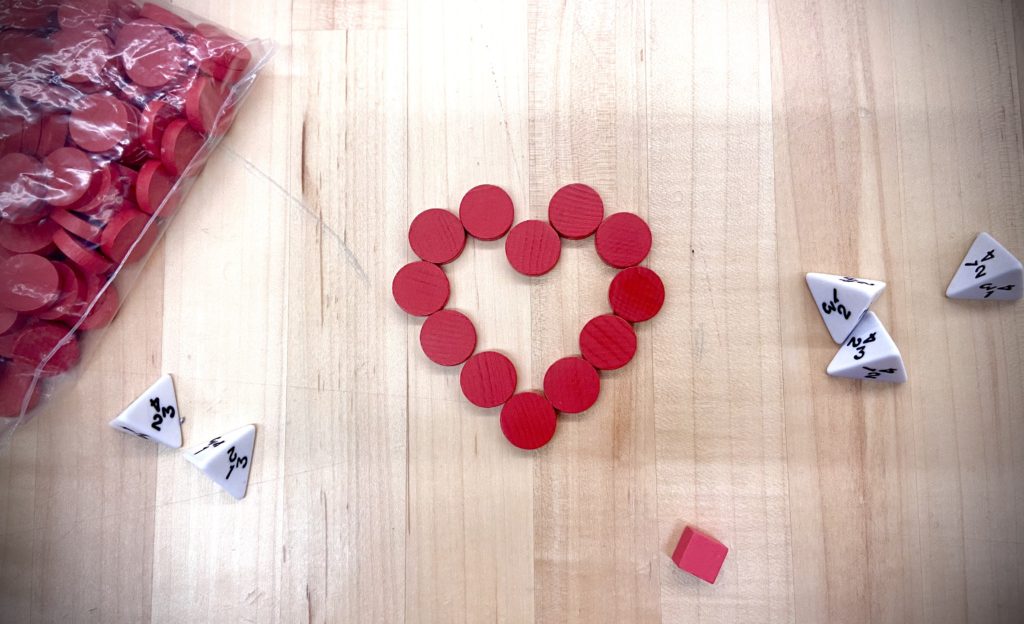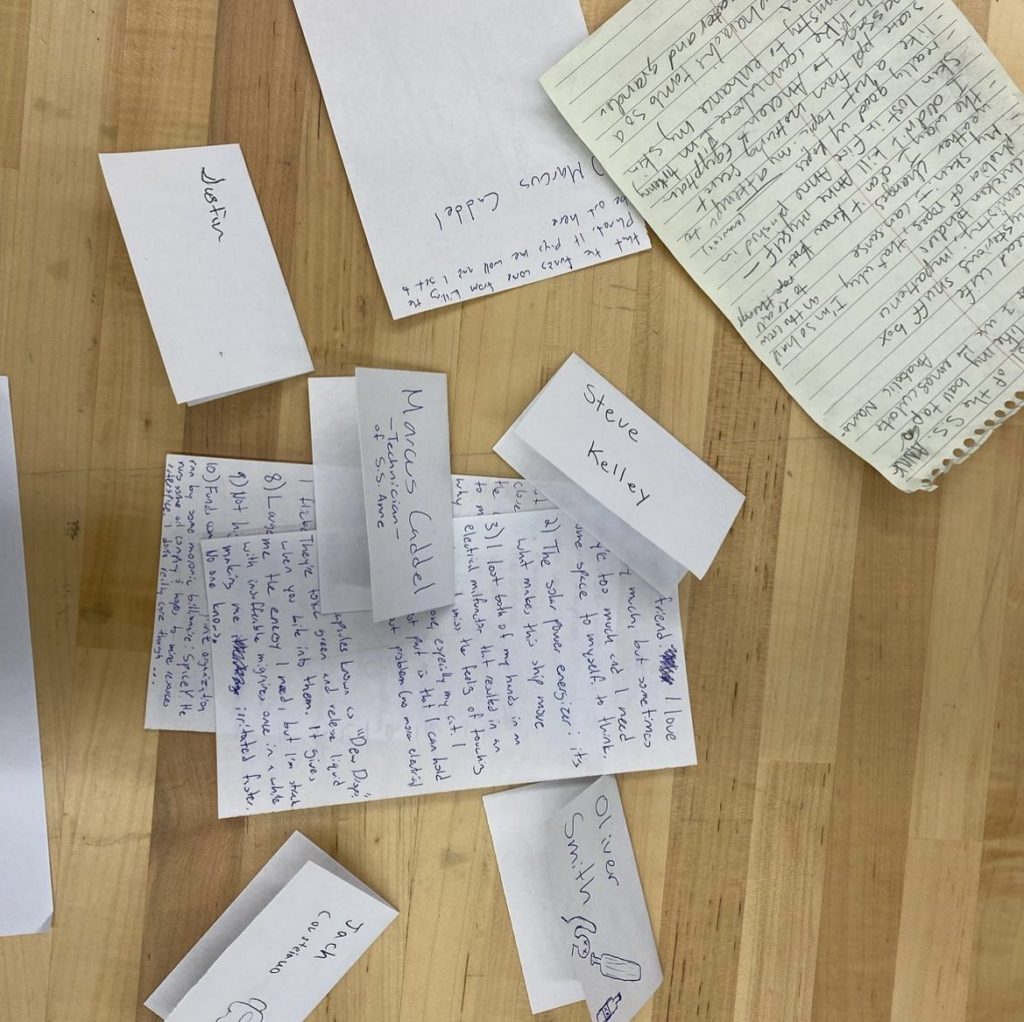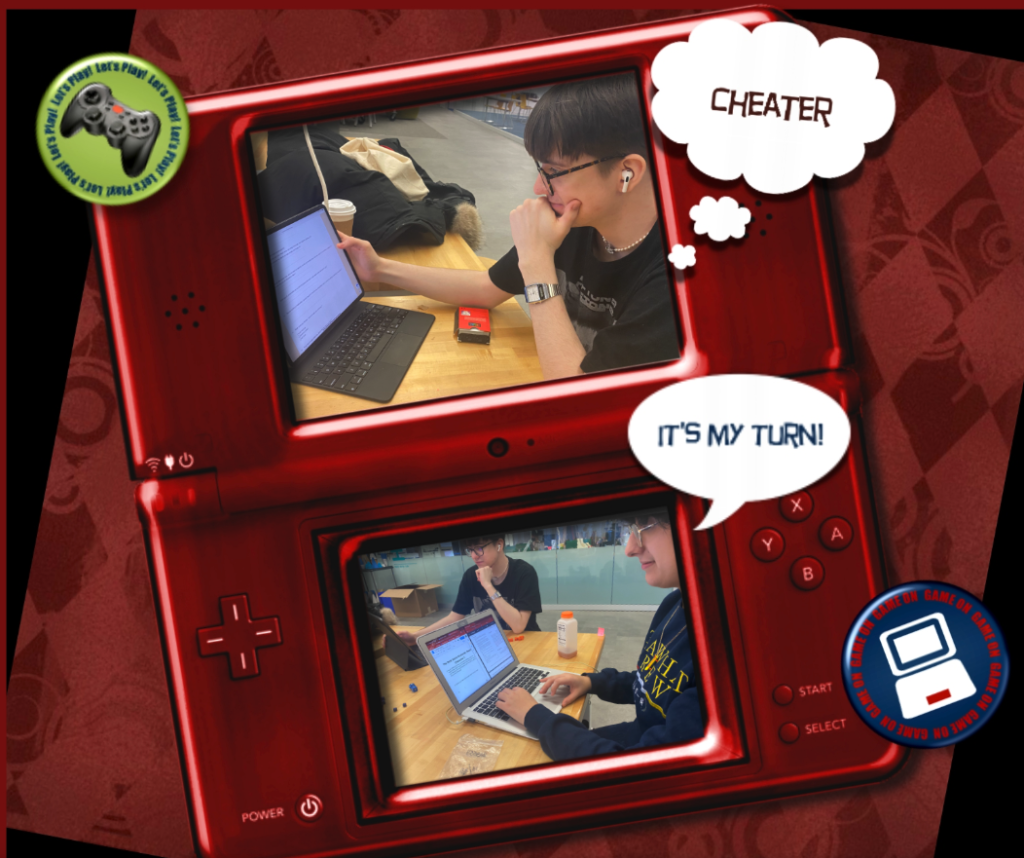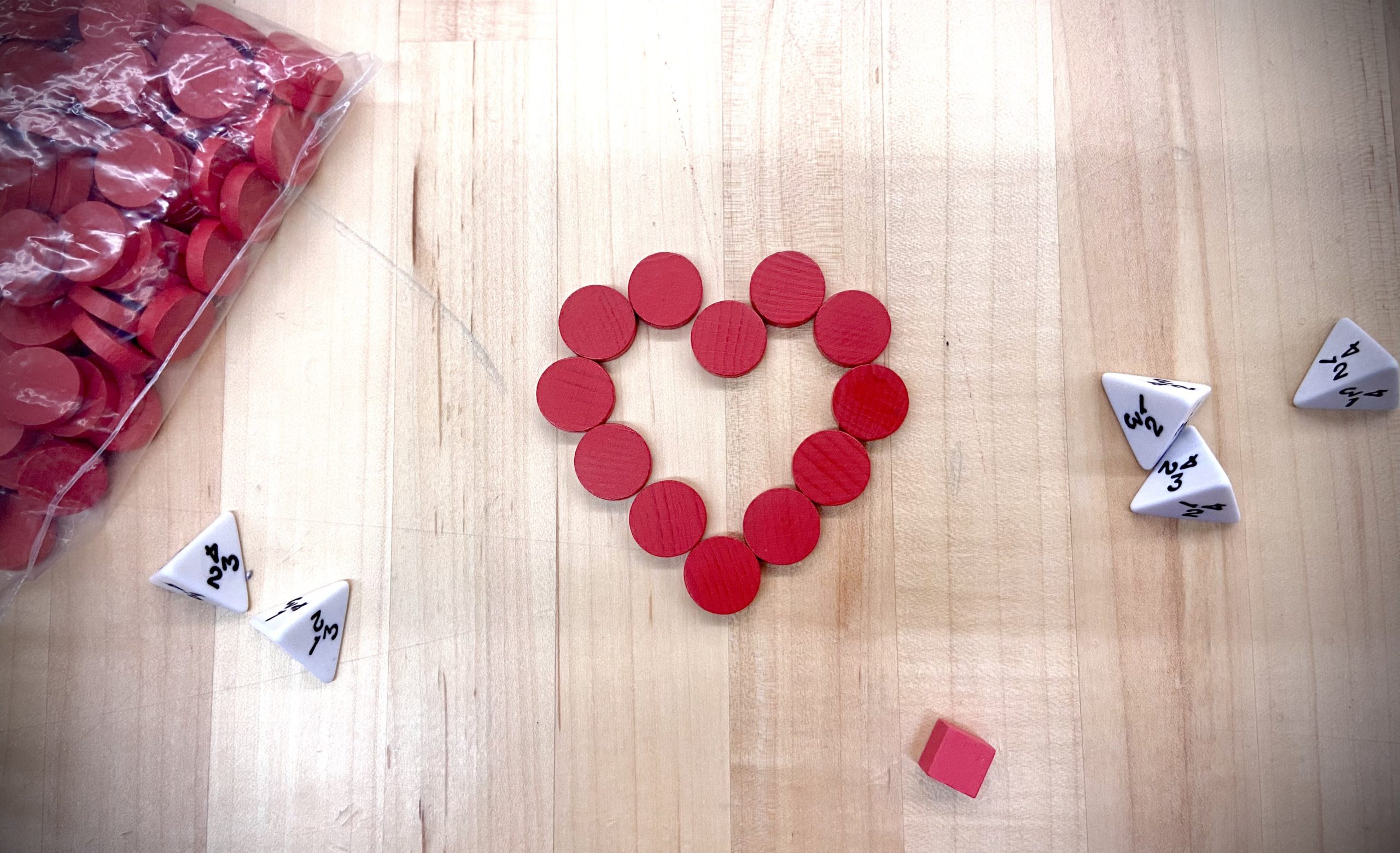
There would be no Team JACH without Fiasco. If only I had a nickel for every time someone says this! Our team is composed of talented rapscallions Dylan Thompson, Giacomo Cetorelli, Monica Villarreal, Tallon Hodge, and myself, who shall remain nameless. Fiasco was a bit of a challenge for the team (at the time, known as #monica) upon first attempt to play. The prospect of reading and absorbing game rules and mechanics was daunting for those of us who are less knowledgeable about TTRPGs than the others. The next time we met up as a complete group, we got down to business and played both Dread and Fiasco. Despite our varying levels of experience with TTRPGs, improv, and game master mechanics, we spent three hours hooting AND hollering at each other’s narrative zingers and cooperation. From Fiasco, a character named Jach, meant to be pronounced like Bach, arrived on the scene during character introductions. During a round of improv, a group member delivered a god-tier insult by purposely mispronouncing the name as Jatch for the rest of the game. “I just don’t know, Jatch…” “Jatch, please.”

Between laughing and gasping for air, what was previously considered a chore became a reasonable mechanic. The longer we played, the easier it was to perform the mechanics while role-playing. The same goes for our playthrough of Dread, which had a lasting impression on how to guide players while still letting them drive their characters and narrative. The Jenga aspect, as intended, helped create a visualization of stakes and narrative development, as well as a timekeeping object. However, we needed to spend more time thinking through how much of the narrative should be provided as opposed to invented by the players.
Building a world takes time and sandwiches
Our next group meeting–while initially impeded from everyone being <hungy>–proved productive in terms of general themes, win conditions, and figuring out what tools a player would need to feel engaged without pressure to be creative/improvise the entire narrative. The starting point for our chosen theme morphed from “dating sim” to “fantasy-world office romance game” to “a reality dating show like The Bachelor or Too Hot to Handle, but set in a fantasy world.” A logical progression. When presented with what feels like a massive undertaking, it feels like one might not be able to make something playable. With the newer emphasis on narrative, the potential inclusion of game masters, and a dangerously slippery slope to ‘dragons? idk make your own damn story’, we simplified many of the character intricacies (e.g. stats) and what a round of the game would look like in action (level of improv needed for narrative building, more “game show” elements like challenges and dates in specific locales).
As discussed in class, we needed to look at examples of games that have already accomplished most or all of what we hope to with our game. We discussed Monster Prom and how there is an event to mark the end of the game after six weeks (weekdays only) for interactions with other characters and exploring the world. Conversations about dating games turned into conversations about dating shows, since they are role-playing games, if you think about it. With shows like The Bachelor and Love Island taking over global airwaves in many a garbage television-loving household, it is likely that someone could understand what a dating show is. We grappled with the idea of having a Game Master or not. However, with this new “dating show” format, we can easily position the Game Master to be the game show host, with players being contestants.


Challenges
The varying levels of experience with TTRPGs made it difficult to discern whether a game element was a mechanic or a gimmick. On top of that are the usual challenges for a 5-person group project: Schedule conflicts like work shifts or classes and varying levels of winter term burnout certainly has us playing on hard mode. While it’s a great experience to learn how to work in teams with people who aren’t your besties, it is as difficult as it is rewarding to balance working styles (e.g. asynchronous vs. in person, clashing aesthetics/preferred game types).
Coming Soon
In our last meeting before the first play test session, we determined the events that can take place, auxiliary physical assets needed (pictured in the cover photo), the content for the Contestant Questionnaire that will help the Host understand the characters and potential connections, MVP rules, and win conditions. As I write, the other group mates have their elected responsibilities. We’ve remained connected via Discord calls and chats (I don’t live near campus and I avoid driving on icy roads as much as possible), and are in lock step. While we still want to flex more creative muscle in the world-building and character design departments as we grow from the feedback we get during play testing, we hope that our concept will delight you all the same.
Team JACH is excited to present “Isle of Betrothal”, a tabletop role-playing game that combines the dazzling spectacle of ‘reality tv’ dating shows and the intricate worlds of high-fantasy for all levels of TTRPG experience.
